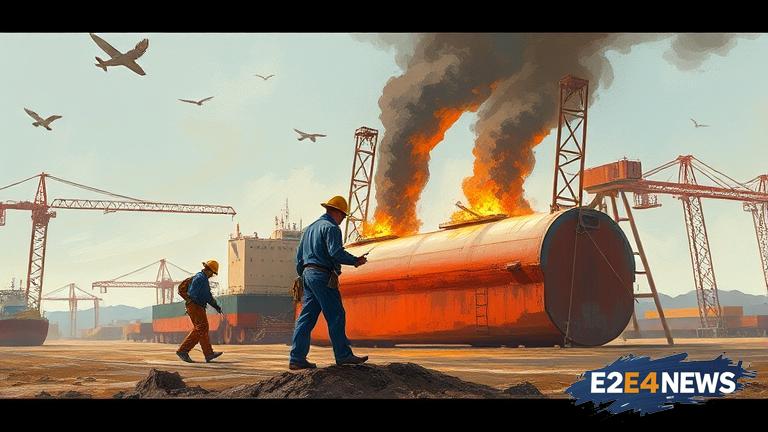The ongoing trade tensions between the United States and China have led to a new wave of tariffs being imposed on various goods, including copper. Australian mining giant BHP has found itself at the center of this trade dispute, with its copper exports to the US facing significant tariffs. The tariffs, which were imposed by US President Donald Trump, have been met with criticism from various quarters, including the Australian government. The Australian government has expressed concerns that the tariffs could have a negative impact on the country’s mining industry, which is a significant contributor to the national economy. BHP, which is one of the world’s largest mining companies, has also spoken out against the tariffs, stating that they could lead to job losses and reduced investment in the sector. The company has urged the US and Australian governments to work together to resolve the trade dispute and avoid any further escalation. The tariffs on copper imports are part of a broader trade war between the US and China, which has been ongoing for several years. The trade war has led to significant tensions between the two countries, with both sides imposing tariffs on each other’s goods. The US has imposed tariffs on a wide range of Chinese goods, including electronics, machinery, and textiles. China has retaliated by imposing its own tariffs on US goods, including soybeans, aircraft, and automobiles. The trade war has had a significant impact on the global economy, with many countries feeling the effects of the tariffs. The International Monetary Fund (IMF) has warned that the trade war could lead to a global recession, with many countries experiencing reduced economic growth. The Australian government has urged the US and China to negotiate a trade deal, which would help to reduce tensions and avoid any further escalation. The government has also stated that it will work closely with BHP and other affected companies to mitigate the impact of the tariffs. In addition to the tariffs on copper, the US has also imposed tariffs on other Australian goods, including steel and aluminum. The Australian government has expressed concerns that these tariffs could have a significant impact on the country’s manufacturing sector. The trade dispute has also led to concerns about the impact on the global copper market, with many analysts warning that the tariffs could lead to reduced demand and lower prices. The copper market is a significant sector, with copper being used in a wide range of applications, including electronics, construction, and transportation. The tariffs on copper imports have also led to concerns about the impact on the environment, with many analysts warning that the reduced demand for copper could lead to increased production of other metals, which could have negative environmental impacts. The US and Australian governments have stated that they will work together to resolve the trade dispute and avoid any further escalation. The two countries have a long-standing trade relationship, with the US being one of Australia’s largest trading partners. The trade dispute has led to concerns about the impact on this relationship, with many analysts warning that the tariffs could lead to reduced trade and investment between the two countries.
